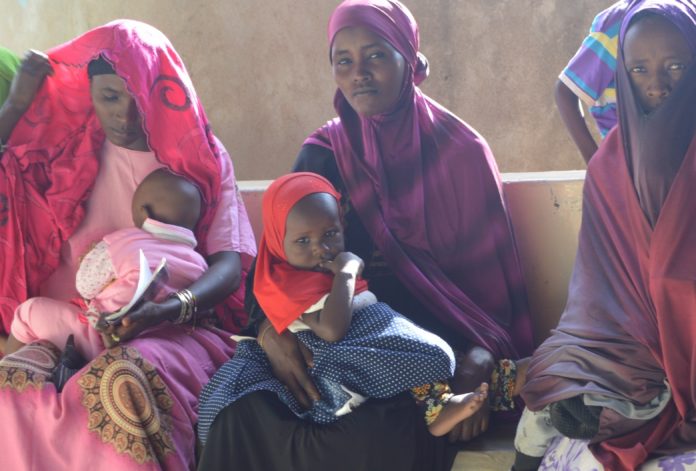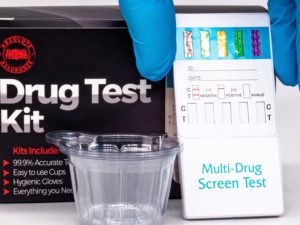By Talk Africa Reporter
Nairobi, Kenya: Access to TB treatment and tests has been reported to hinder efforts towards the fight against the disease, a report has revealed.
Médecins Sans Frontières/Doctors Without Borders (MSF) has called on governments to accelerate testing, treatment, and prevention for TB.
They have also called on donors to provide the financial support needed to ensure increased access to new medical tools for diagnosing and treating millions of people with this killer disease.
A recent report ‘Step Up for TB’ released by MSF and the Stop TB Partnership—surveys 37 high TB-burden countries, including Kenya shows that critical medical innovations on TB are reaching far fewer people who urgently need them. As many countries continue to lag behind in getting their national policies in line with the new World Health Organization (WHO) guidelines.
“Instead of stepping up for TB, we are at risk of slipping back due to COVID-19,” said Sharonann Lynch, Senior TB Policy Advisor for MSF’s Access Campaign. We cannot stress enough how urgent it is now for governments and donors to intensify their efforts so that critical medical innovations and tools reach people with TB. We finally have better drugs and tests to tackle and prevent this extremely infectious yet curable disease, so it’s both mind-boggling and unacceptable that they’re still not being used to save as many lives as possible.”
While reporting on the severe impact of the COVID-19 pandemic on TB services, WHO revealed a sharp drop in the number of people diagnosed. Besides needing to catch up to maintain continuity of existing TB services, it advised countries to adopt and roll out better testing policies and practices.
Presently, countries continue to fall short on rolling out up-to-date testing policies that can assist in reaching nearly 3 million people still being missed. As highlighted in the report, a whopping 85% of countries surveyed do not use the lifesaving point-of-care urinary TB LAM test, a urine-based, rapid point-of-care test, offers a simple way to save lives by rapidly detecting TB in people living with HIV, as recommended by WHO.
But Kenya is currently using the TB LAM tests for detecting TB in people living with HIV, who are severely sick or have advanced HIV disease are eligible for urinary TB LAM, regardless of CD4 counts.
Despite such an effort the Ministry of Health in Kenya needs to step up to ensure that Urinary TB LAM is implemented for routine use not only in inpatient (IPD) and outpatient (OPD) settings as well.
“As clinicians working on the frontlines of the raging TB epidemic, it is distressing to see the sluggish uptake of TB LAM in national treatment programs. Countries must step up the use of TB LAM as a core component of testing services, otherwise, delays in diagnosing people with TB and getting them started on treatment will continue to fail people with HIV who get TB.” Dr Patrick Mangochi, Deputy Medical Coordinator for MSF in Malawi.
Countries must take immediate action to implement people-centered TB policies, including treatment initiation and follow-up at primary healthcare facilities.
Also, national treatment programs must prioritize the use of all-oral treatment regimens for people with drug-resistant TB (DR-TB) that no longer include older, toxic drugs that have to be injected and cause serious side effects.
The report finds that only 22% of countries surveyed allow TB treatment to be started and followed up at a primary healthcare facility, instead of traveling to a hospital, for instance, and for medicines to be taken at home.
In Kenya, a longer all-oral regimen for the treatment of adults with DR-TB has been implemented for routine use. However, the use of a modified shorter all-oral regimen for eligible adults with DR-TB, either for routine use is yet to begin.
Another compounding challenge for people living with TB in Kenya is that the Implementation Status of the modified shorter all-oral regimen for treating adults with DR-TB is planned but not started or might be on the routine use.
On June 30, 2020, Kenya launched two new key policies to stop TB in Kenya. According to The Ministry of Health, the policy documents will guide the efforts in ending TB in the country. The Chief Administrative Secretary for Health, Dr. Rashid Aman mentioned that the Kenya Injectable Free Regimens and Latent TB Infection (LTBI) Treatment policies were key to the ministry’s strategic goal of ridding the country of TB by 2030 as envisaged in vision 2030 and the SDGs.
In Kenya, TB is the fifth leading cause of death.
TB remains the world’s top infectious disease killer, with more than 10 million people falling ill and 1.4 million people dying due to this disease in 2019. Implementing WHO guidelines are urgently needed to minimize the unnecessary risk of COVID-19 by reducing visits to health facilities, without disrupting the treatment.
















